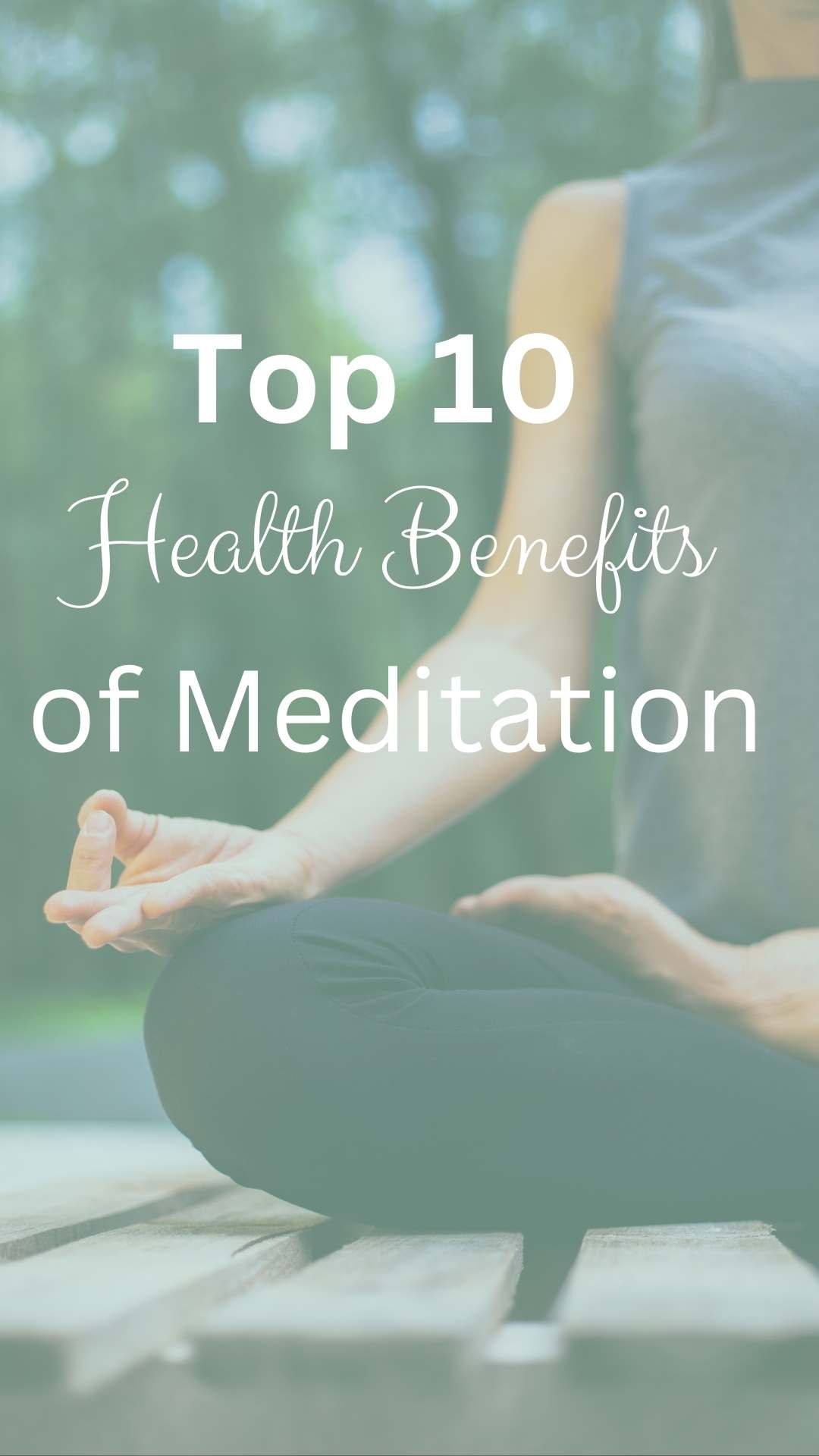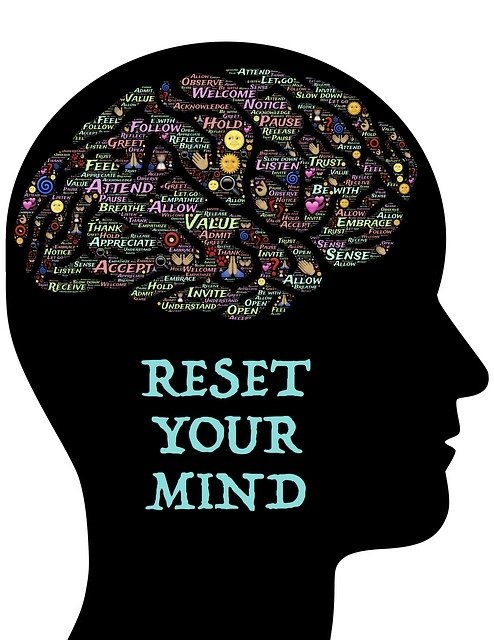Meditation is a form of relaxation that people have practiced for thousands of years. Meditation is an effective way to reduce stress and anxiety, and to increase happiness.
If you’ve tried meditation, you might know how powerful it can be. Or, you may have given up after just a few minutes.
This post will explain 10 of the top meditation benefits on health. You will also learn how to begin meditating today, so you can live a happier and healthier life.

Relax, Reduce Stress And Boost Your Overall Health with Meditation!
Meditation is a practice that involves focusing on breathing to calm the mind and body. Some known benefits of meditation are relaxation, stress relief, and improving mental health.
You may have heard the term “mindfulness”. Meditation involves focused concentration in the present moment. Practicing mindfulness meditation is a useful tool for stress relief and mental clarity. But did you know that meditation practice isn’t just good for your mind? It can also be a great way to improve your health. Here are some of the incredible physical and mental health benefits of meditation.
Physical Benefits of Meditation
Stress Reduction
Stress plays a role in many illnesses and chronic conditions. Stress reduction is one of meditation’s most significant benefits. Mindfulness meditation helps reduce stress by helping people focus on the present moment. When we pay attention to the present moment, we can better cope with stressful situations. When we meditate, we can relax and clear our minds from the worries of everyday life. When stressed, we might worry about the future or think about the past. But when we concentrate on the present moment, we are less likely to ruminate over the past or dwell on the future.
Mindfulness-Based Stress Reduction (MBSR)
Mindfulness-based stress reduction (MBSR) is a specific program that trains people in mindfulness meditation. Jon Kabat-Zinn developed MBSR at the University of Massachusetts Medical School. MBSR teaches mindfulness meditation to reduce stress and improve our ability to handle stress. MBSR consists of eight weekly sessions. In each session, you learn a new mindfulness meditation skill. You also learn how to apply mindfulness to everyday situations.
MBSR has been found to have a positive impact on quality of life. MBSR has also proven to be effective in reducing stress, depression, anxiety, and pain. To learn more about MBSR, check out this link.
Reduced blood pressure
People who are chronically stressed often have higher blood pressure. High blood pressure can lead to heart attack, stroke, kidney disease, and many other problems. Many studies show the effectiveness of meditation in reducing blood pressure. Read this article to learn more about the relaxation response and how it affects blood pressure.

Improved Sleep Quality.
Mindfulness meditation is one of the most effective ways to improve sleep quality. Research shows that people who practice meditation are more likely to have a better night’s sleep than those who don’t.
Increased Immunity.
If you’re stressed out, you may not be able to fight off infections as well as you normally would. Stress hormones can interfere with the immune system and lower our resistance to illness. Because mindfulness meditation helps us feel less stressed, our immunity can improve.
Help Manage Chronic Pain
According to the CDC, chronic pain affects more than 50 million people. Several studies show that practicing meditation may help those suffering from chronic pain. If you have chronic pain, meditation can be an effective way to manage it.
Mental Health Benefits of Meditation
There are many mental health benefits to meditating. Some of those include improved concentration and focus, improved mood, and anxiety reduction.
Better Concentration.
If you want to improve your concentration, consider mindfulness meditation. Research shows that regular mindfulness meditation practice can improve focus and memory. Mindfulness meditation practice can increase the cortical thickness of a person’s hippocampus.The hippocampus is one of the parts of your brain responsible for memory.
Reduced Anxiety.
Mindfulness meditation helps people learn how to control their thoughts and emotions. Learning to control your thoughts is an effective way to reduce anxiety. When we practice meditation, we also learn to relax our body and better deal with situations that trigger anxiety.
Improved Self Awareness and Self Esteem
We become more aware of our emotions and learn more about ourselves as a result of meditating. This self-awareness often improves our self esteem. One particular type of meditation that improves self-esteem is loving-kindness meditation. This meditation style allows us to experience profound love for ourselves and other people.

Addiction Recovery
Mindfulness training also helps people recover from addictions. Read more here. It allows people coping with addictions to overcome their urges and cravings and to avoid relapse.
How to Practice Meditation
There are many techniques of meditation. Some involve being quiet, while others include chanting or listening to music. Some people do guided visualization; others do yoga or mindfulness meditation. Some people like to do meditation training while lying down while others like to sit. I don’t prefer lying down because I fall asleep immediately.
It’s essential to find something that works for you. The following is what worked for me to get started.

Get an app
Meditation apps are available for smartphones and are convenient ways to meditate. Make sure you choose a program that is highly rated.
Set a specific time to meditate.
A schedule is easier to stick to than free-floating meditations. Set a time and place to meditate each day, and try to meditate a few minutes each day.
If you often forget to meditate, set the alarm on your cell phone or computer for the same time each day so that it starts to become a habit.
Find a comfortable spot
Your body and mind need to be relaxed to meditate successfully. Find a quiet place where you won’t be interrupted. I find it easiest to meditate in a clean and clutter-free space.
Sit comfortably
Sit in a comfortable position with your spine straight and your legs crossed. Avoid slouching or leaning forward. Sit upright with your feet on the floor.
Set your timer
If you aren’t using an app to meditate, set a timer to alert you when your session is over. If you are new to meditation, start with meditating for just two minutes.
Clear your mind
Clear your mind of all distractions. Easier said than done, right?
To clear your mind:
- Focus on your breath.
- Inhale through your nose and exhale through your mouth.
- Concentrate on the feeling of air flowing into your lungs.
- Focus on your breathing until it feels natural and your mind is calm.
Try mini mindfulness meditations
Check out my post for 100 mindfulness exercises. You will learn how to bring mindfulness throughout your day.
Conclusion
As you can see, the benefits of meditation go far beyond stress relief and include many health benefits. These ten benefits are just the tip of the iceberg.
If you’re not convinced yet, try this quick experiment. Take a few minutes out of your day to meditate. Once you start feeling calm and focused, notice how your mind feels.
Did you feel more relaxed? You probably did. You just now experienced only one of the benefits of meditation.
Start meditating your way to a healthier and happier you!
Disclaimer: I am not a medical doctor, therapist, Registered Dietitian, or financial advisor. The information presented is purely for informational purposes. Check with a doctor or other professional before making any nutritional, fitness, lifestyle, or financial changes. The author and blog disclaim liability for any damage, mishap, or injury that may occur from engaging in any suggestions or ideas from this site.
